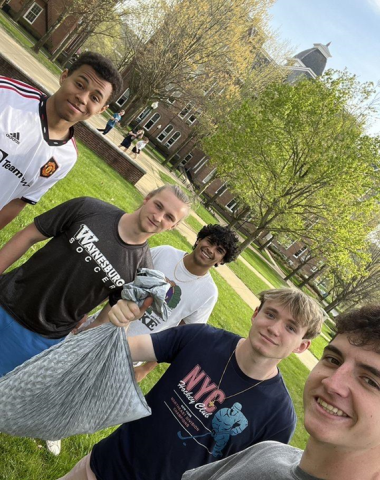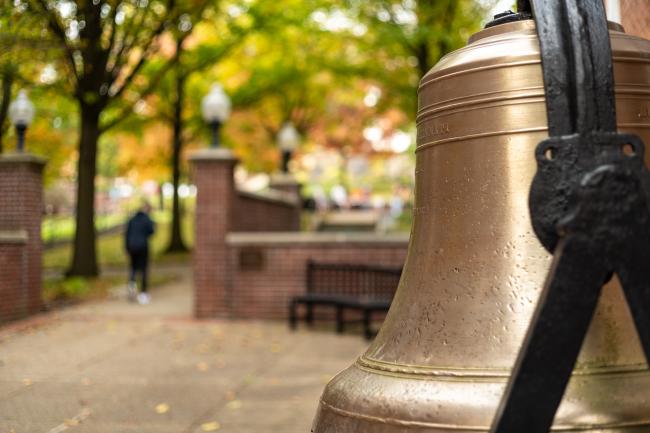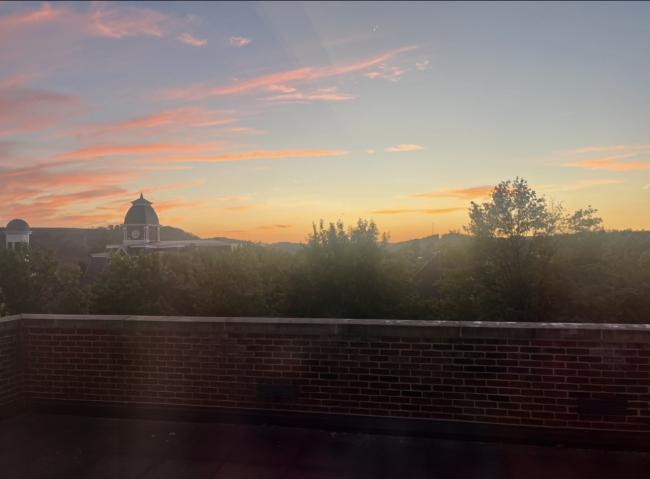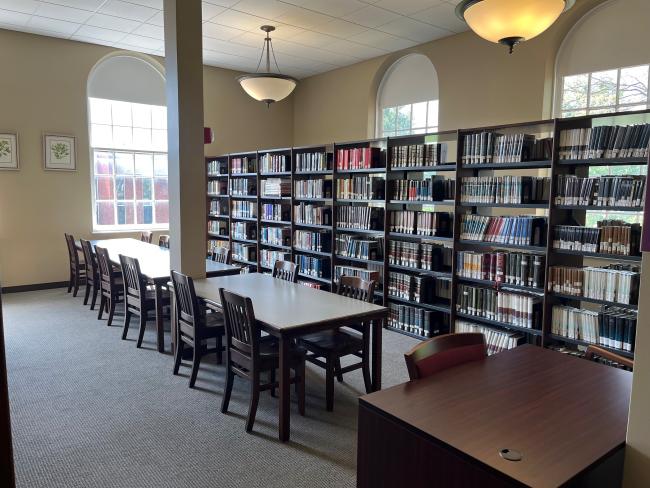This year, as part of the HSC 209 Public and Community Health course offered on campus, enrolled students were tasked with a unique assignment to complete by the end of the term—perform two acts of kindness. Even more unique was how the assignment came to fruition.
“The idea was inspired from the students in HSC 209,” explained Kimberly Wise, associate professor of Athletic Training and clinical education coordinator. “I posed a question on the midterm examination to assist with student learning and/or my teaching technique: name one positive aspect about HSC 209 as well as one change you would incorporate to the course.”
[This] assignment ties into the course by showing the impact our positive actions breathe towards the health of others, especially when dealing with mental health and the lack of resources within a community.”
Wise said the overwhelming response from students was a desire to be more involved with the community. So, after reflecting over spring break, she created “Acts of Kindness.”
The “Acts of Kindness” assignment was designed to not only answer students’ desires to become more involved in the community, but provide a deeper understanding of how Christianity and healthcare work together. In this way, students were also able to put into practice the three tenants of the University’s Christian mission of faith, learning and service through the form of showing kindness to others.
As a part of the assignment, students completed two acts of kindness of their choice—something helpful or unexpected for an individual or the greater community—with no expectation of receiving anything in return.
Some of the projects completed by students included, donating blood during a blood drive, participating in Locks of Love hair donation, crafting goodie bags for the homeless, helping the University’s Ecostewards Club on the Unity Trail, cleaning up trash on campus and more.
While they worked to complete their assignments, students began to recognize just how closely these simple acts of kindness tied into the larger course topic of public and community health.

“[This] assignment ties into the course by showing the impact our positive actions breathe towards the health of others, especially when dealing with mental health and the lack of resources within a community,” said James Davis, a junior health and exercise science major from Kersey, Pennsylvania.
"‘Public and Community Health’ is a broad topic but narrowing it down to Acts of Kindness opened my eyes,” added Alec Engelmore, a sophomore health and exercise science major from Pittsburgh, Pennsylvania. “These acts of kindness can alter someone’s day or maybe even someone’s life.”
“It's important to be the positive change that you want to see in the community,” explained Michael Francus, a sophomore health and exercise science major from Bethel Park, Pennsylvania. “It gives us a chance to make somebody who may be having a rough day smile.”
This assignment has inspired me as a person to keep striving to be the best person I can be and be able to give more of myself to others."
And the more students participated in the assignment, the more they wanted to do for others.
“I was strongly impacted by this assignment because helping others proved to be such an enjoyable way to spend a few of my afternoons,” shared Cody Lowden, a junior health and exercise science major from Lebanon, Pennsylvania. “I plan on continuing going out of my way to help others as I move forward.”
“This assignment has inspired me as a person to keep striving to be the best person I can be and be able to give more of myself to others,” added Cameron Burrus, a sophomore health and exercise science major from Chesapeake, Virginia.
The HSC 209 Public and Community Health course introduces students to “the core functions of public health with an emphasis on community, epidemiology, public and environmental health and current trends of population health” and is offered during the spring semester.
“I’m extremely proud of the HSC 209 cohort,” said Wise. “The assignment was not driven by ‘points to elevate their grade,’ but rather they responded by giving their time, compassion and love to the community.”


